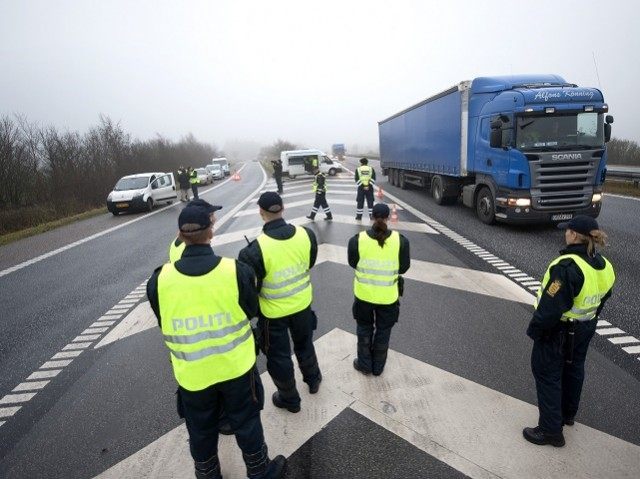After forming a government with the support of ‘Denmark’s UKIP’, the new centre-right bloc’s foreign minister Kristian Jensen has travelled to Germany to meet his counterpart and discuss the new border arrangements.
Although the Eurosceptic, anti-mass-immigration Danish People’s Party (Dansk Folkpartei, DF) has declined to join the government coalition because of irreconcilable differences with the now ruling centre-right Venestre party, they are supporting the government by voting for their bills on the condition they tighten up the borders. Denmark’s only land border is with Germany, a 40-mile frontier that is presently completely open because of the Schengen agreement of free movement between European nations.
But that is to now change. Although remaining true to the letter of the Schengen agreement to avoid legal tangles with the European Commission, as happened in 2011 when Venestre and DF were last in government, new controls and check points will be installed to combat crime and human trafficking, reports TheLocal.dk. There would be no permanent physical barrier with Germany, said Jensen, but rather “checks in the border areas”. Speaking of the friction generated with the rest of Europe last time border checks were attempted by Denmark, but remarking the reception in Germany had been very positive this time, Jensen said:
“Some of what created a lot of attention in Europe back in 2011 was that there wasn’t a preceding dialogue. There were many myths about what we were proposing back then. This time we will attack it differently.
“What Steinmeier and Germany are paying attention to is that what the Danish government is coming with will be within the options given by Schengen […] Steinmeier accepted that we are engaged in a process that is within the Schengen rules and with dialogue with our neighbour countries”.
Border security and limiting migration became a major election issue, and propelled DF into second place nationally as the largest right-wing party after the Copenhagen terror attacks in February this year. 22-year-old Omar Abdel Hamid El-Hussein, who was killed by police, attacked a freedom of speech event and a synagogue with an assault rifle stolen from the Danish Home Guard. He has already been imprisoned for a stabbing attack in 2014, but was released in 2015 – just weeks before he pledged allegiance to the Islamic State and committing his second atrocity.
DF is now the largest right-wing party in Denmark but declined to join the right-wing coalition. In return for its support in parlaiment, they are expected to continue to push for support for their policies, including an EU referendum, curbs on immigration, and support for the Danish Monarchy and Church.
Follow Oliver Lane on Twitter: Follow @Oliver_Lane or e-mail to: olane@breitbart.com

COMMENTS
Please let us know if you're having issues with commenting.